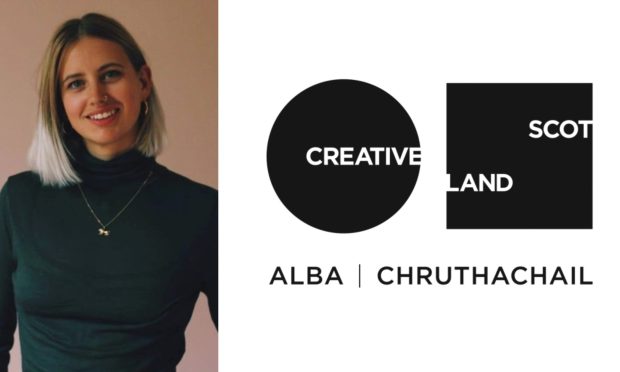
Creative Scotland is facing fresh questions over its funding of an explicit film as new details emerged of the show director’s previous work and public statements.
On Tuesday the arts funding body withdrew support for REIN after The Sunday Post revealed that the 45-minute film involved the cast carrying out extreme sex acts with one another.
Creative Scotland insists it has a rigorous application process, but now claims it was not aware of the finer details.
The organisation, which provided £110,000 in funding, said the explicit nature of the show – featuring “non simulated” sex acts – had not featured in the original grant application. It said it would now be seeking to recover monies paid to director Leonie Rae Gasson.
Meanwhile, Creative Scotland last year denied the Edinburgh Deaf Festival funding for almost the same amount.
The row drew criticism from other artists and opposition politicians, who demanded full transparency from Creative Scotland, including the publication of Gasson’s application.
Following The Sunday Post’s revelations, it emerged that five years ago Gasson directed a show in which young people, including a 16-year-old, used objects as sex toys live on stage.
The show, which was called Love & Machinery, was part of a Youth Theatre Arts Scotland event in Edinburgh.
Now The Sunday Post can reveal that, before Creative Scotland approved the grant for REIN, Gasson had made a short recording in which she spoke in explicit detail about that event and her future film plans.
In the recording, she says: “I started making a few one-on-one works that were thematically about sex, working with a group of young people.
“We made a work with them about sex, and there was just a really gorgeous bit where they’d ask for things from people’s bags in the audience. Then they sort of take them away, and when they come back, they’ve made sex toys out of all of them. It was good, good vibes.”
Gasson also spoke about the REIN project, saying: “REIN is like, as I was starting to understand my inner landscape a bit better, I wanted to make something I could feel really connected to. And, for me, that’s always been sex, like sex is something I’ve really easily been able to access my body.”
She added: “Kink culture is a big part of my life. I need to make a work that’s really exactly like a wet dream that I’ve had, and I’d quite like an arts council to fund it.”
Meanwhile, Creative Scotland’s head of equalities and diversity, Kim Simpson, had previous contact with Gasson, hosting a radio show where she was an invited guest. Gasson received letters of support from places where Simpson previously held senior roles.
Creative Scotland spends about £90 million a year on 1,600 applications for funding. Chief executive Iain Munro is paid £185,000 a year, while HR boss Karen Lannigan gets £115,000, and screen director Isabel Davies £125,000. Media and communications boss Kenneth Fowler, a former head of communications for the Scottish Government, gets £100,000.
Scottish Conservative social justice shadow secretary Miles Briggs said: “No wonder people are outraged by this scandal and the staggering sums being handed out, particularly at a time when our NHS is falling around our ears over lack of funding. It is right we get proper answers over exactly who is making these decisions to hand over public funds and what proper oversight is there.”
Scottish Labour’s shadow justice secretary, Neil Bibby, said: “People are very angry over this scandal, and it certainly does not seem to be going away. It has become very clear this is something that never should have received public money, and we insist there must be full transparency and openness, including publishing the original application.” Creative Scotland is now refusing to discuss REIN, but says it did not directly fund Love & Machinery.
Youth Theatre Arts Scotland CEO Kenneth McGlashan said: “We don’t currently have any association with Leonie Rae Gasson. We are also not involved in the REIN project, which has recently had Creative Scotland funding withdrawn.
“Back in 2019, Leonie secured a place on a development programme we hosted for youth theatre directors.
“That programme involved taking part in workshops with other professional artists and directors, watching productions together and developing a new work-in-progress, which was then staged at the Traverse Theatre in November 2019.”
He said the work involved “different perspectives on the topic of sex in a safe female-only space”, and parents “understood the nature of the project”.
McGlashan said the audience was “fully aware of the content” and the organisation has a “robust” safeguarding and child protection policy. The show was performed by Lyceum Youth Theatre (LYT) actors and included a child actor.
Mike Griffiths, of the Lyceum, said it had “no plans” to work with Gasson and added: “If any Lyceum Youth Theatre members did happen to be involved with Love & Machinery they will have been recruited via a separate call-out from the project.”
He said LYT has “safeguarding procedures” in place so young people would not “be at risk” or involved in anything “exploitative”.
I’m begging strangers for £5 or £100…it’s shameful
Struggling artists have expressed frustration at the funding award for explicit film REIN, saying their own applications had been turned down by Creative Scotland.
One artist – who asked that we not use his full name as he was currently applying for funding – said the application process was extremely detailed and involved a panel of 10 people. He said: “It’s like a dissertation, the funding process. Their claims about not knowing about it are completely farcical.”
Award-winning filmmaker Fraser Coull said he had been forced to turn to crowdfunding to help make his films.
He runs Silly Wee Films, and is crowdfunding a film series that he says has already been accepted by a major television company, but he cannot get funding from Creative Scotland or its off-shoots.
Coull said: “I’ve had repeated applications turned down. The goalposts are constantly changing and, despite having 17 local artists and crew desperate to finish making our latest film Faithful, based on Scottish folklore, I’m begging strangers for £5 and £100 to help me finish it.
“We managed to make half a film, but my money runs out this weekend and that means these talented artists and incredible crew will have to wait until I can raise £10,000 crowdfunding to finish production.
“It’s galling that so many talented young filmmakers, actors and artists are all in the same boat, and it just feels like we are hitting our heads off walls and pleading with people who do not seem to care about funding home-grown talent.
“I’ve actually had funding from other countries for past productions rather than money from Creative Scotland, and that is shameful.”
Deaf Festival struggles after funding rejection
Edinburgh Deaf Festival organisers say they have struggled since being turned down for funding by Creative Scotland last year.
A bid for funding of just under £110,000 to support the running of the festival was rejected in July 2023, weeks before the festival was due to start.
Their second application, a £216,000 bid to secure the future of the festival this year and for 2025 was also turned down and the charity say they cannot make up the shortfall.
That was despite a Scottish Government pledge to make Scotland the “best place in the world for British Sign Language users to live, work, visit and learn”.
Speaking at the time, Philip Gerrard, CEO of festival organiser Deaf Action, said: “Creative Scotland’s failure to award funding to Edinburgh Deaf Festival is devastating.
“It means fewer opportunities for deaf artists to fulfil their potential, and for young people to see deaf role models on stage – inspiring the next generation of deaf talent.
“In the space of just two years the festival has established itself as an integral part of the Edinburgh Festival family.
“It has created a cultural space where deaf communities can celebrate their identity, culture, language, and heritage.
“Importantly, it is a deaf-led initiative, empowering the deaf community to express itself through the arts.”

Enjoy the convenience of having The Sunday Post delivered as a digital ePaper straight to your smartphone, tablet or computer.
Subscribe for only £5.49 a month and enjoy all the benefits of the printed paper as a digital replica.
Subscribe © Colin Hattersley
© Colin Hattersley